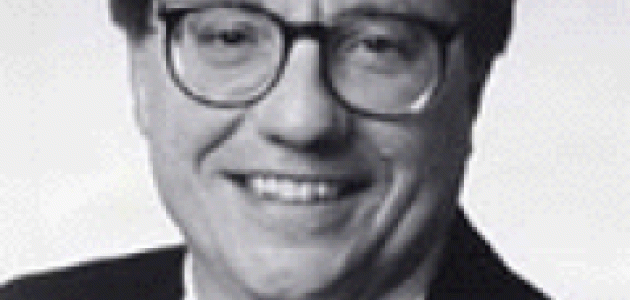ROBINSON The first baby boomers are fifty years old this year, and over the next couple of decades the entire generation of baby boomers--the baby boom is usually said to have lasted from 1947 to 1961--will be reaching retirement age. The two of you contend that this spells trouble. What kind of trouble?

SHOVEN Social Security can't deal with the baby boomers--it just can't. Medicare, the health program that the government provides for the elderly, is projected to go bankrupt in just four years. Medicaid, the program of health support for the poor, is usually less vulnerable to demographic changes. But even Medicaid is under terrific pressure, and it will have to be fixed within no more than four years.
For that matter, the whole federal budget is going to be under pressure as the population ages. Look at the trouble Congress and the president are having balancing the budget right now, even when both parties have agreed on a goal of balancing the budget by the year 2002. Ten years from now, balancing the budget is going to be much harder.

WISE Here's the nature of the trouble in just a few words. In 1990, for every person seventy years old, there were three persons who were thirty. But by the year 2030, for every person seventy years old, there will only be one person who's thirty--there will be the same number of seventy-year-olds as thirty-year-olds. Since retired people are supported by working people, that means trouble for Social Security.
ROBINSON There's one point we'd better clear up. Many retired people are under the impression that the Social Security checks they receive are made up of their own money, deducted from their paychecks over the years. That's just flatly untrue, isn't it?
WISE It is. The Social Security checks that go to people who are currently retired are made up of money taxed from people who are currently working. And that's exactly where the trouble lies.
SHOVEN That's right. Back when Social Security was started, there were about 9.0 workers for every retiree. Today there are only 3.2 workers for every retiree. That ratio is scheduled to go to 2.0 workers per retiree when the baby boomers retire. The point is that it's easy to have a retirement program that's generous for the retired when there aren't that many people retired but that it gets a lot harder when the ratio of working people to retired people starts to shrink.
WISE And there are actually two pieces to this demographic change in the population. We've already talked about the demographic bulge caused by high birthrates during the baby boom. That's the first piece. The second piece is that individuals are living longer. For example, between 1960 and the present, the life expectancy of people who reached the age of sixty-five has increased a full 20 percent. That means people who reach the age of sixty-five live about three years longer today than they did in 1960. And that's another three years when they'll be drawing benefits from Social Security and Medicare.
ROBINSON But the people we're talking about, the baby boomers, will have come of age and had their careers during the second half of this century, a period, on the whole, of unprecedented economic growth. Can't we assume that they will have saved a little on the side--and that they won't need Social Security as desperately as did older people of earlier generations?
WISE No. It just doesn't work that way. Unfortunately, a very large fraction of Americans reaching retirement have virtually no personal savings. If you ask, "How much does the typical family have in bank accounts as it approaches retirement age?" the answer turns out to be only about $10,000.
Now, clearly, there's a sizable minority of retired people who are financially well-off. But they're just that--a minority. Most people reach retirement age with almost no reserve to meet unforeseen contingencies and far too little even to pay their daily bills over the period of a ten- or twenty-year retirement.
SHOVEN When it was introduced, Social Security was never expected to be the sole source of income for the elderly. It was always thought that Social Security would be part of a three-part solution. There would be Social Security, there would be pensions provided by employers, and there would be private savings that people would do on their own.
What David is saying is that for at least half of the elderly population, two legs of the stool--employer-provided pensions and private savings--do not exist. So when most Americans retire, they're counting on Social Security. And unless there's a major fix to the system, the Social Security payments millions of people are counting on just plain won't be there.
ROBINSON So? How do we fix the system?
SHOVEN The bottom line is that the government's going to need more money. That means higher taxes. And even with higher taxes, benefits are likely to be less generous.
WISE And people are going to have to work longer.
SHOVEN And the retirement age for Social Security will have to be raised. I think it'll go to seventy. It's a tough transition that we face, and we're going to be working our way through it for the next thirty, forty, or fifty years.
ROBINSON Hiking taxes and cutting benefits. But there are other, more-radical reforms under consideration, right? The president appointed a commission to look at Social Security, and the commission recommended privatizing Social Security to a greater or lesser extent. Just what sort of privatization did the commission have in mind?
SHOVEN Well, privatizing would mean switching to a system where people actually do save their own money, in their own accounts. The money would be invested in stocks and bonds, much like a real pension plan. Then when people retired, they would get back their own assets with the earnings.
ROBINSON So each worker's money would no longer go to other people--that is, to current retirees--and would instead be set aside for the workers themselves. Good idea, right?
SHOVEN But it would involve breaking a lot of promises.
ROBINSON Promises?
SHOVEN Sure. The current elderly think that they're going to be supported by today's workers. Now, if today's workers say, "Well, we're going to save for ourselves. We're not going to give the current elderly the money," then we'd end up breaking $11 trillion worth of promises. That's the amount the Social Security system has already in effect promised to pay, both to those who have already retired and to those who are still working but have begun to pay into the system.
Breaking $11 trillion worth of promises is something that's just not going to happen. We'd have to have a transition, and it would have to be handled very, very carefully.
ROBINSON But setting aside the question of transition, would you at least agree to privatization in principle?
SHOVEN In principle, I am in favor of what I call partial privatization.
ROBINSON What's the partial part of it?
SHOVEN I think the government may need to continue to supply a safety net--a minimum standard of living. We don't want elderly people who are forced to live on the streets.
ROBINSON David, you'd be in favor of privatization in principle?
WISE I would be in favor in principle. But I agree with John. The privatization should be partial.
ROBINSON Back to the question of transition. John?
SHOVEN You know the old saying about real estate? That the three most important things are location, location, location? When we're discussing Social Security reforms, the same thing can be said, except that it's transition, transition, transition. As I said, we have $11 trillion in promises. We can't just walk away from them. We'll be paying off those promises for at least another fifty or sixty years.
No matter what sort of privatization we might put into effect, we're going to have to have relatively high payroll taxes, not to finance the new system but to pay off the old promises. So at some point we'll be forced to say to workers, "You have to start saving for your own retirement while you go right on supporting people who are already retired." That's a double burden. Working through that won't be easy.
ROBINSON Why haven't we done anything about this crisis already? People have known it was coming for years, haven't they? Does it say something disturbing about American democracy that we haven't been able to avert it?
WISE It does, but I must say it's not only American democracy that has this problem. Other countries, especially in Europe, face the same problem--in Germany in particular the problem is much, much worse than our own.
SHOVEN There does seem to be a certain irrationality at work here on the part of the public. If you ask younger Americans, "Do you think you're going to get anything from Social Security?" they answer, "I don't think I'm going to get very much." And if you ask them, "Are you saving enough?" they answer, "No. I should be saving 10 percent. I'm only saving 2 percent." But then if you ask them, "How well off do you think you'll be when you retire?" the answer you get is, "I'll be fine."
WISE But it's not as if the situation is hopeless. In fact, we've already seen what amounts to a partial privatization of Social Security. What I'm talking about here is the 401(k) retirement accounts. Right now, about 45 percent of employees are eligible for a 401(k) plan. About 35 percent contribute. And all of that has taken place just since 1982.
ROBINSON What you're saying is quite dramatic, isn't it? The government gave people a little tax break to encourage them to save more--a 401(k) is just a tax-deferred savings account--and, lo and behold, people did start to save more.
WISE That's right. These tax-deferred accounts do work. Only 45 percent of people are now eligible. But if that expands, and I think it will, then it could have a substantial effect. Although young people are not inclined to get their paycheck and then put 10 percent of it in a bank, they are inclined to tell their employers, "Take money out of my paycheck before I receive it."
















